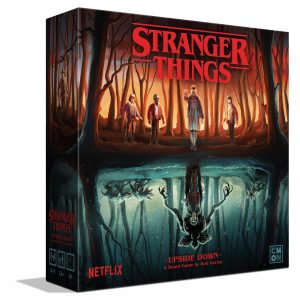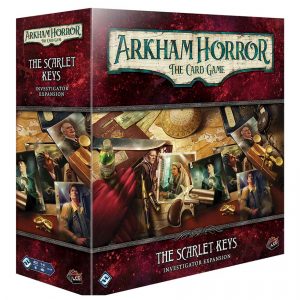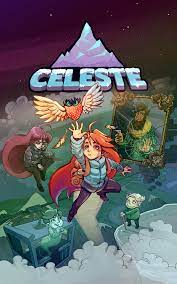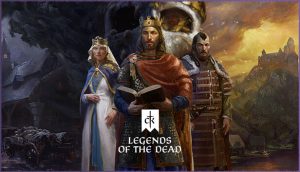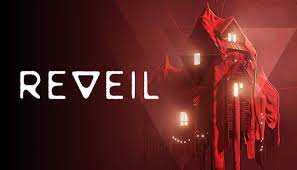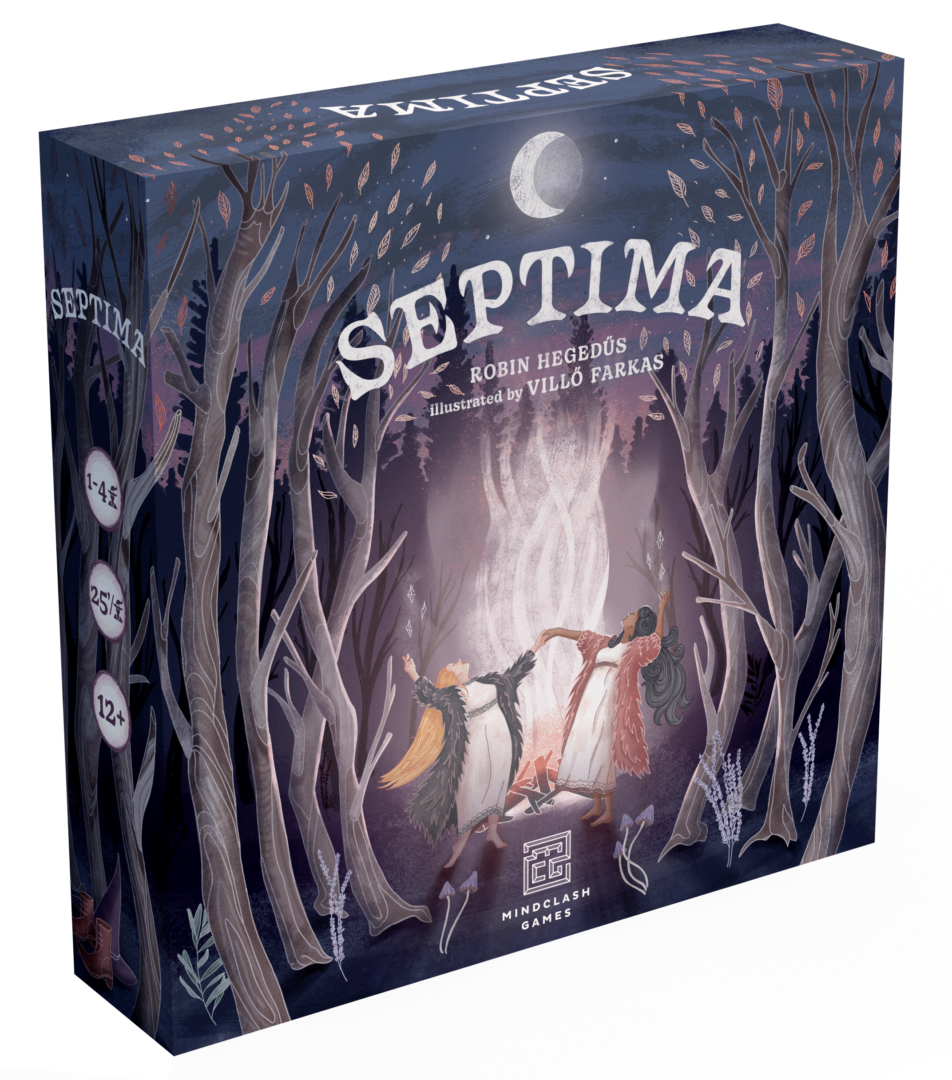
I managed to play the box game thanks to my Polish blogger friend. I haven’t played Mindclash games except for Anachronism, but I know that they are usually brain-dead and long. I like moderately brainy, but I don’t like cumbersome and long. Septima was claimed to be the easier of their games, a level lower than Trickerion.

Plus, the game is incredibly beautiful. The design is just top, so magical, whimsical, fantastic. And the components are well designed. It’s a pleasure to play.
Each turn we will simultaneously with other participants to play with other action cards. Therein lies an interesting feature of the game: if we choose the same thing that others have chosen (or the game’s AI has chosen in the form of Septima the witch), we can all perform the action with a bonus, but we will rise higher on the scale of suspicion (and we don’t want to rise there at all).

Because in Septima, every game year (and there are 4 of them) some witch will be tried. And the players have the opportunity to get her in their “coven” if more of your witnesses than others speak for her at the trial.

I didn’t like this mechanic because it involves pulling miples out of a bag. And we had a situation where a person with 2 miples in the bag won a witch, while other participants had 5 miples in the bag.
A very random thing, which also makes a huge difference on gameplay – if you got a witch on the trial, you also have more opportunities, because every witch has an ability, and you can get points for more secret objectives at the end! This was something that messed me up a lot in general, because one player had 4 witches at the end, while I only had 2 and didn’t have all the objectives scoped out.

The kip-up between turns was also annoying. Each time you had to check a few different things, determine if the witch hunters were moving, update this and that on the field. I don’t know why, but it was annoying, because the moves weren’t that long and intricate and these eternal pauses to check things stretched the time.
Other than that, the game was dragging on for some unknown reason. We do the same thing and in the process of the game is not much to pump or improve their capabilities (even in the advanced version with spells is not much progress is felt). You know yourself collect herbs, go to patients and treat them, build up your secret goals and so on in a circle.

That would be okay, especially given the groovy moment with simultaneous action casting. But it’s completely incomprehensible why it’s done over the course of 4 game years and about 2-3 hours of party time. I didn’t understand why it took so long, because in essence it was just to give people time to get more witches for scoring more objectives and to gain resources for the same objectives. Cutting the game in half would have been much better and more enjoyable.
All in all, the game left mixed feelings: it’s beautiful and there are interesting bits. But it is so dragged out for some unknown reason that I don’t really want to play it a second time.
